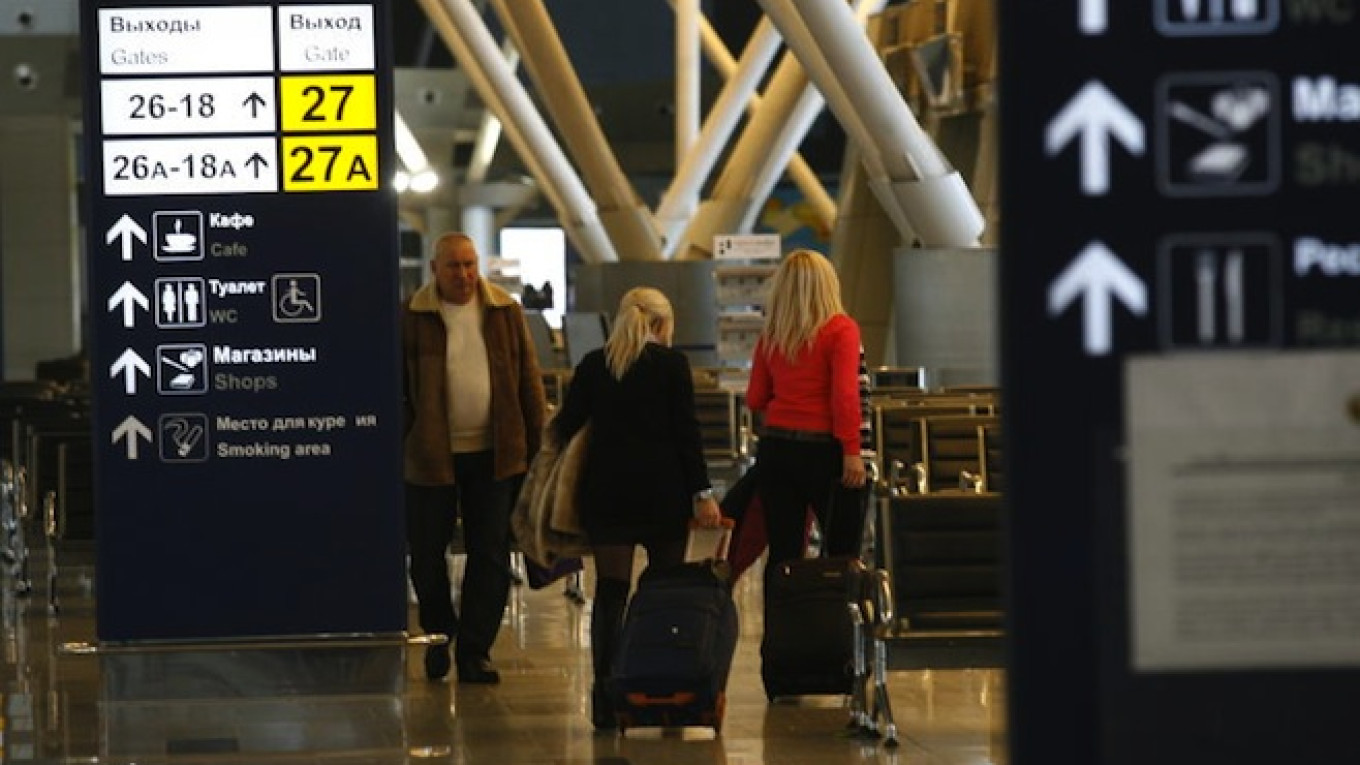More than half of all Russians are against the idea of the government broadening a ban on travel to Western countries, a recent survey has shown, but one third considers more groups should be prevented from leaving the country.
Out of the 1,600 people questioned by independent pollster Levada Center, only 55 percent entirely opposed the idea of limiting travel for more Russians, saying it was an inalienable right to travel abroad without restrictions.
Just under a third of respondents — 28 percent — said travel bans should apply to those holding certain professions, most popularly to those with knowledge of state secrets.
Other, less frequent, answers were that military personnel, judges and other law-enforcement employees should be restricted in their foreign travels.
Nineteen percent of those who were open to the measure also suggested slapping a ban on civil servants, senior political party members and state-media employees, the survey published on the pollster's website Tuesday showed.
Since the dissolution of the Soviet Union, all Russian citizens have the right to freely enter and exit the country in accordance with article 27 of the country's Constitution.
But increasing antagonism between Russia and the West in recent months has seen more and more groups added to a list of those who are "strongly discouraged" from traveling to more than 100 countries — including, in April, personnel from the Interior Ministry, the Defense Ministry and the Federal Prison Service.
The Foreign Ministry at that time also warned all Russians from traveling abroad to U.S.-friendly countries, fearing a fallout from Moscow's annexation of Crimea in March.
Travel restrictions could also be seen as a way of stemming the so-called "brain-drain," which has seen thousands of Russian-educated specialists leaving the country in search of jobs elsewhere.
The Levada Center survey was conducted in 46 Russian regions between Sept. 19-22 and the margin of error did not exceed 3.4 percentage points.
A Message from The Moscow Times:
Dear readers,
We are facing unprecedented challenges. Russia's Prosecutor General's Office has designated The Moscow Times as an "undesirable" organization, criminalizing our work and putting our staff at risk of prosecution. This follows our earlier unjust labeling as a "foreign agent."
These actions are direct attempts to silence independent journalism in Russia. The authorities claim our work "discredits the decisions of the Russian leadership." We see things differently: we strive to provide accurate, unbiased reporting on Russia.
We, the journalists of The Moscow Times, refuse to be silenced. But to continue our work, we need your help.
Your support, no matter how small, makes a world of difference. If you can, please support us monthly starting from just $2. It's quick to set up, and every contribution makes a significant impact.
By supporting The Moscow Times, you're defending open, independent journalism in the face of repression. Thank you for standing with us.
Remind me later.


